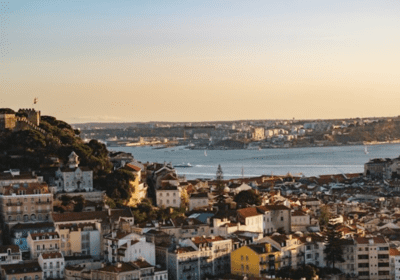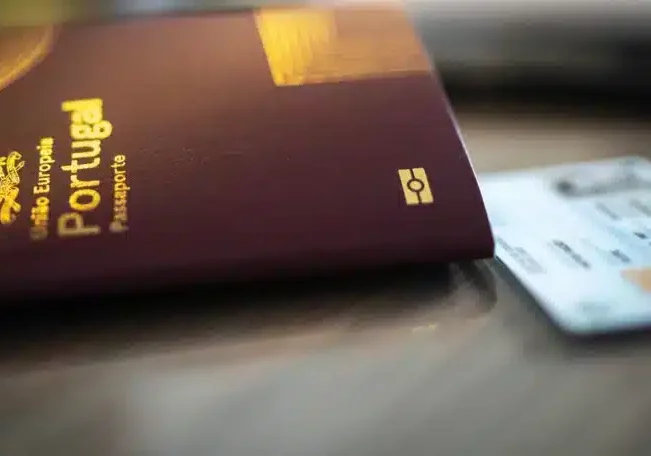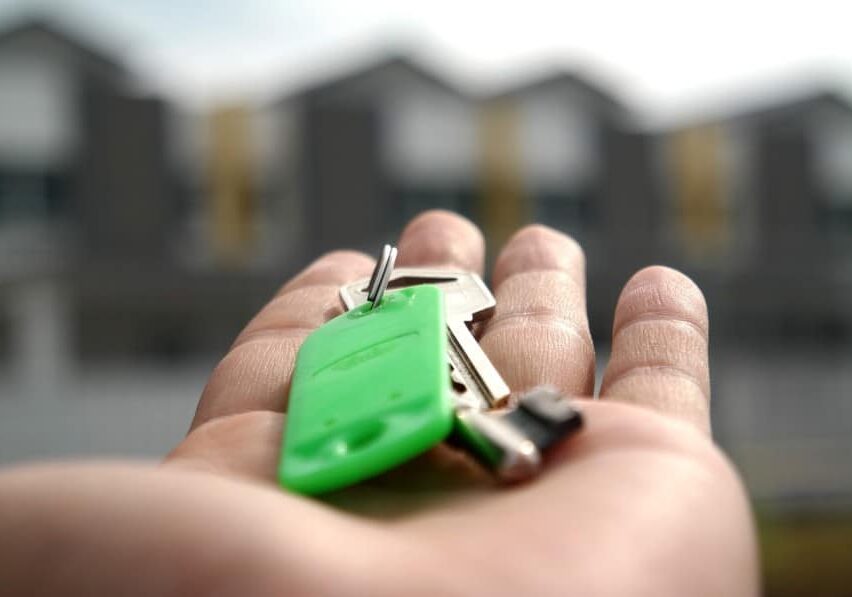Updated: October 30, 2024
Moving to Portugal? As with relocating to any country, there are probably two things on the top of your list to sort out before you organize your move. Firstly, how can I relocate – in other words, what visa options are open to me? And, secondly, how can I ensure a soft landing, and secure my dream home or ideal place to rent?
In this article, we’ll break this down for you, providing a simple overview of your options and how to ensure a stress-free move to Portugal.
Most Popular Visa Options

If you are considering relocating to Portugal and would like to discuss residency options, get in touch with our residency and citizenship division, Global Citizen Solutions, who will be able to guide you through the process.
Golden Visa
The Portugal Golden Visa, the country’s residency by investment program, allows foreign nationals to secure residency in Portugal in return for an investment into the economy.
Golden Visa investment options

- Investment funds (such as venture capital or private equity funds): Worth at least €500,000
- A donation into the arts or reconstruction of natural heritage: Worth at least €250,000
- An investment into scientific research: Worth at least €250,000
- Creation and maintenance of ten jobs during the required period
- Venture capital funds for a commercial property or reinforcement of a company’s share capital, which has its head office in national territory: Minimum investment of €500,000 combined with the creation of five jobs or maintenance of ten jobs (five of them permanent)
Portugal Golden Visa timeline
To kickstart the Portugal Golden Visa process, it is highly advised to work with a Portugal Golden Visa lawyer or consultant. Below, we provide a brief overview of the timeline:
- Year 0: Visa application and documents submitted online to AIMA, the Agency for Integration, Migration, and Asylum. Once approved, you need to have an interview with them. As the main applicant, you and your dependents can book the AIMI appointment simultaneously. Following this, there is a 9-12 month wait before your residence permit will be issued, which is then valid for two years.
- Year 2: Renew the residence permit, valid for a further two years.
- Year 4: Renew the residence permit, which can be renewed for another two years.
- Year 5: You can apply for permanent residency and/or Portuguese citizenship, provided you meet all the requirements. Once citizenship is granted, you can get a Portuguese passport.
D7 Visa
The Portugal D7 Visa, also known as the retirement visa or passive income visa, allows you to relocate to Portugal provided that you have a minimum passive income of €820 per month, which will increase by 50 percent to include a spouse and an extra 30 percent for each dependent child.
Foreign income can come from pensions, real estate, or financial equity, and you will need to show bank statements as proof of meeting these financial requirements. You will also need to have a confirmed address in Portugal, a clean criminal record, and spend at least 16 months in Portugal during the initial two-year period.
D7 Visa timeline
The first step to secure a D7 Visa is to obtain a temporary four-month visa in your home country. This can take up to 60 days. Once you get your temporary visa, you will then have an appointment with AIMA. When they have collected your documents and biometric data, it will take three months for them to send your residence card to your Portuguese address.
Obtaining a temporary four-month visa in your home country can take up to 60 days, provided you submit all the required information.
When you receive your visa, you will also have an appointment with AIMA, which the Portuguese Consulate books when they issue your visa.
Once AIMA has collected your documents and biometric data, it will take about three weeks for them to send your residence card to your Portuguese address. The legal deadline for this is 90 days.
- Year 0: Get your residence permit, which will be valid for two years
- Year 2: Renew your residence permit, which will be valid for a further three years
- Year 5: You can apply for permanent residency and/or Portuguese citizenship, provided you meet all the requirements. Once citizenship is granted, you can get a Portuguese passport.
Digital Nomad Visa (D8 Visa)
Portugal’s Digital Nomad Visa (D8 Visa), launched in 2022, provides the opportunity for remote workers who work for a foreign (non-Portuguese) company or who are self-employed to live in Portugal. There are two options to the Digital Nomad Visa, the first being a Short Stay Visa, where you can stay in the country for up to one year, which can then be extended, or a residency permit, valid for two years, and then a further three years.
Requirements for the Digital Nomad Visa
To secure a Digital Nomad Visa, you will need to work for a foreign employer or be self-employed. Alongside this, you will need to have a minimum income amount of four times the minimum national wage in Portugal, which comes to €3,280. You will need to show proof of this income and consistency of income, to show that you receive this income on a regular basis.
As with the D7 Visa, you begin the process by applying in your home country at your local embassy. The processing time will vary from country to country, but typically takes about 60 days to be reviewed and approved. When you receive your Digital Nomad Visa, you will then be allocated an appointment date with AIMA, which can take upwards of four months. Following this, you should get your residence permit within 90 days.
The process can be broken down into:
Step 1: Gather your required documents, fill out an application, and write a cover letter
Step 2: Lodge your application at your local embassy
Step 3: Await your Digital Nomad Visa
Step 4: Enter Portugal. AIMA will typically schedule an appointment with you, and the date will be included in your visa documentation. If not, call AIMA to schedule this appointment.
Other visa options
Although the Golden Visa, D7 Visa, and the Digital Nomad Visa are each popular options for non-EU nationals, there are many other visa types to secure residency in Portugal, such as the D2 Entrepreneurship Visa and the D3 Qualified Workers Visa.
If you are considering moving to Portugal, make sure to explore your options to see which residency route is best suited to your personal situation.
Ensure a Soft Landing: How to Sort Accommodation
Alongside getting a visa to relocate to the country, you’ll want to consider where you are going to stay. Plus, for some visas, such as the D7 Visa, you will need to provide proof of a Portuguese address. Below, we provide you with a brief overview of the process to rent or buy property in Portugal.
Decide if you want to buy or rent
The first bridge to cross is to determine if you are looking to buy a property or rent one. While buying property is arguably the smarter option in the long term – particularly as property values in Portugal in general are on the rise – renting can be a good option to begin with while you decide which neighborhood, city, or part of Portugal you feel is most suited to you.
Renting property
If you have rented out property before, you’ll find the process in Portugal to be quite familiar. Below, we provide you with an easy step-by-step process to renting out a property in Portugal.
- Step 1: Define your requirements. This will include determining where you would like to live and the proximity to key services and amenities, such as an international school or hospital, and determining if you would like to be close to the ocean, parks, and so on.
- Step 2: Search for the property. Once you’ve defined your requirements, you can then kickstart your search. It can be worth working with worth seeking expert assistance to ensure find your ideal property based on your lifestyle aspirations.
- Step 3: Property viewing. We recommend going on as many viewings as possible. If you work with a professional, they will be able to arrange the viewings on your behalf.
- Step 4: Review and signing the contract and paying the deposit. After selecting the property that you’d like to rent, you will need to sign the rental contract (contrato de arrendamento), and, for this, you will need to have a Portuguese tax number). In most cases, you will also need to pay a deposit at this stage.
- Step 5: Get the keys: When you’ve signed the contract, you are good to go, and you can safely move into your new home.
Buying property

Below, we provide a simple step-by-step overview of the process.
- Step 1: Financing: Determine if you require financing to buy property. There are more than fifteen banks in the country that offer mortgages for foreign buyers.
- Step 2: Define your requirements. Determine which part of Portugal you would like to live in or invest in. You should also think about what is essential and what would be nice to have; for example, would you like a private pool, sea view, or garden? Think also about more practical factors, such as where the nearest healthcare center or international school is. Also consider what you enjoy doing in your free time – where is the closest beach, the nearest golf course, and also think about proximity to restaurants.
- Step 3: Find your dream home. The next step is to scout out potential properties. As the property market in Portugal is fragmented and there is no one place to find all the property listings, working with real estate professionals will ensure you have full market access, helping you refine your search, so you secure your ideal property. You will also commit to due diligence at this stage to ensure that there are no issues with the property itself or with the seller. For this, legal assistance is highly recommended.
- Step 4: Make an offer and negotiation: The next stage is to make an offer and negotiate the price with the seller. Again, a real estate agent can help no end here, ensuring you get a fair price for the property.
- Step 5: Reservation Agreement: Once the offer is accepted, you will usually be required to sign a Reservation Agreement to effectively ensure the property is “off-market” while you make your final decision and pay a reservation fee of around €5,000 to €15,000 that will then be deducted from the property price later on.
- Step 6: Promissory Contract: Following this, the next step is to sign the Promissory Contract (CPCV), which is usually signed in front of a Notary, and which legally binds both parties to proceed with the sale under the pre-approved terms. At this stage a deposit of around 10 percent of the property price is paid.
- Step 7: Sign the Escritura (Final Deed): The final step is to sign the final deed in front of a Notary, paying the remaining balance of the property price and other associated taxes and fees. You are then the official owner of the property, concluding the process.
Bear in mind the taxes and associated fees that you will also need to pay. For an in-depth guide on snapping up property, you can check our article Buying Property in Portugal.
Goldcrest: How We Can Help You Discover Your Perfect Property
As the first buyer’s agent in Portugal, we understand the complexities of snapping up property in the country and the difficulties foreign buyers face. Unlike real estate agents in Portugal, we work solely for the property buyer to ensure they secure their dream property at the best price.
We pride ourselves on tailoring our service to each buyer, whatever you are looking for. It is this attention to detail that sets us apart from our competitors.